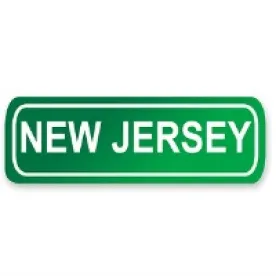In January 21, 2020, Governor Phil Murphy signed into law Senate Bill 3170, which expands New Jersey’s Millville Dallas Airmotive Plant Job Loss Notification Act (New Jersey WARN Act) well beyond the requirements of the federal Worker Adjustment and Retraining Notification Act of 1988. The law is scheduled to go into effect on July 19, 2020, and will make New Jersey the first state to guarantee payment of severance to employees affected by mass layoffs.
The amended act contains the following changes to the existing law:
- Expanded Notice Requirement: The amended act requires an employer that has 100 or more employees to provide at least 90 days’ notice before the first employee is discharged as part of a mass layoff, termination of operations, or transfer of operations. The existing law requires only 60 days’ notice.
- Mass Layoffs: The amendment to the law also lowers the threshold for the scope of a layoff covered by the New Jersey WARN Act. Under the original law, to be subject to the state act, a layoff had to result in the discharge of at least 50 employees at the establishment, and the discharged employees had to make up at least 33 percent of the total workforce of the establishment. However, the amendment to the New Jersey WARN Act, while retaining the 50-employee threshold, has eliminated the 33 percent requirement. Thus, as long as the event results in the discharge of at least 50 employees at or reporting to the establishment (the definition of which also has changed, as discussed below), the layoff is covered, even if it represents a small percentage of the employees working there.
- Mandatory Severance Requirement: Employers will be required to provide discharged employees with “severance pay equal to one week of pay for each full year of employment.” If an employer provides less than the required 90 days’ notice, it must pay the discharged employees “an additional four weeks of pay.” Previously, employers were required to pay severance only if they did not meet the notice requirement. The rate of severance is calculated as “the average regular rate of compensation received during the employee’s last three years of employment with the employer or the final regular rate of compensation paid to the employee, whichever rate is higher.”
- Coverage of Part-Time Employees: The original New Jersey WARN Act did not require employers to consider part-time employees in calculating the 50-employee minimum for application of the act or the 100-employee threshold for the notice requirement. However, effective July 19, 2020, employers will have to include part-time employees, regardless of hours worked, in both calculations. Further, the part-time employees will be entitled to 90 days’ notice and severance just like full-time employees.
- Expanded Definition of “Establishment”: The amended state act defines “establishment” as “a place of employment which has been operated by an employer for a period longer than three years, but shall not include a temporary construction site.” It clarifies that an establishment “may be a single location or a group of locations, including any facilities located in [the state of New Jersey].” The prior definition of “establishment” was limited to “a single location or a group of contiguous locations, including groups of facilities which form an office or industrial park or separate facilities just across the street from each other.” Some may argue that this new definition considers all of an employer’s worksites in New Jersey as one “establishment” and, further, that the amended act applies to any employer that lays off 50 or more employees in New Jersey and has at least one facility that has been operating in New Jersey for more than three years, regardless of whether all of the affected employees work at that particular location.
- Expanded Definition of “Employer”: The new definition of “employer” includes not only the direct employer, but also “any individual, partnership, association, corporation, or any person or group of persons acting directly or indirectly in the interest of an employer in relation to an employee, and includes any person who, directly or indirectly, owns and operates the nominal employer, or owns a corporate subsidiary that, directly or indirectly, owns and operates the nominal employer or makes the decision responsible for the employment action that gives rise to a mass layoff subject to notification.” This new definition may impact the way an employer considers leased employees at its locations. It also could create personal liability for owners and managers of employers.
- Elimination of Waivers: Under the amended act, employees cannot waive their right to severance without approval from the Commissioner of Labor and Workforce Development or “a court of competent jurisdiction.”
In light of these changes, employers that are considering making changes to their workforces in New Jersey may want to learn what their obligations are under the amended act, and if they are planning any layoffs, they may also want to consider accelerating the timing of those layoffs so that they occur before July 19, 2020.




 />i
/>i
